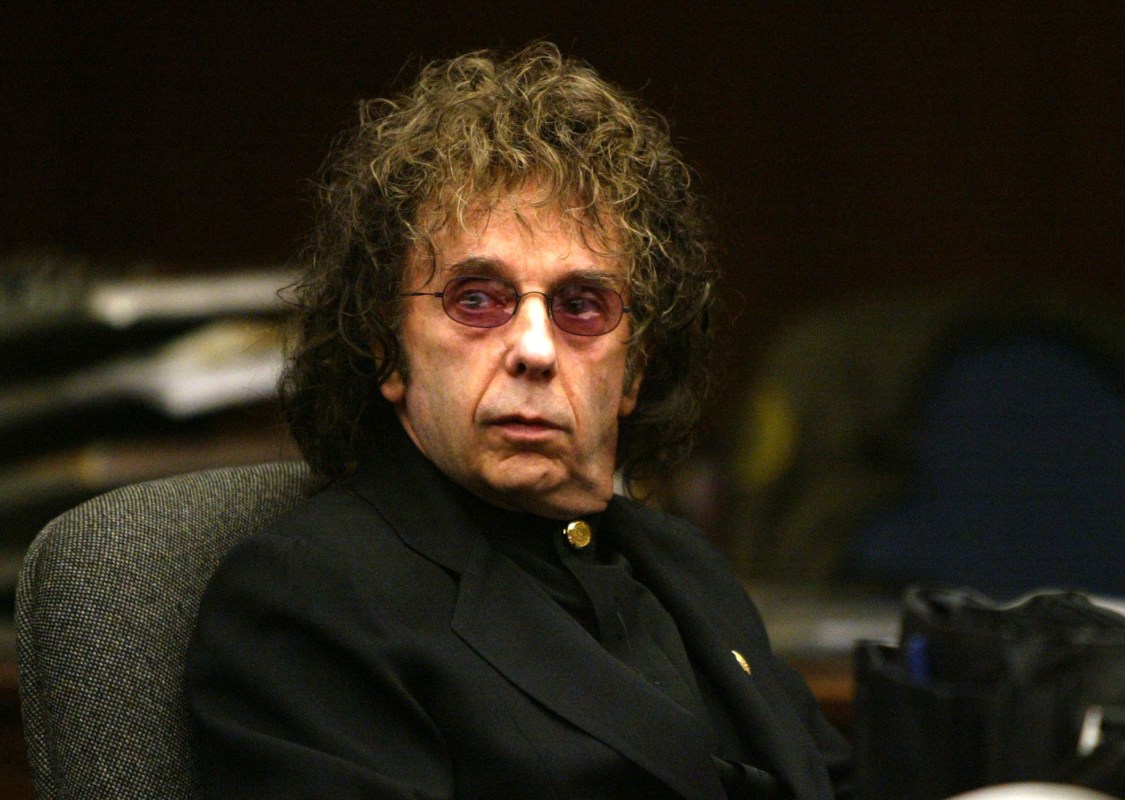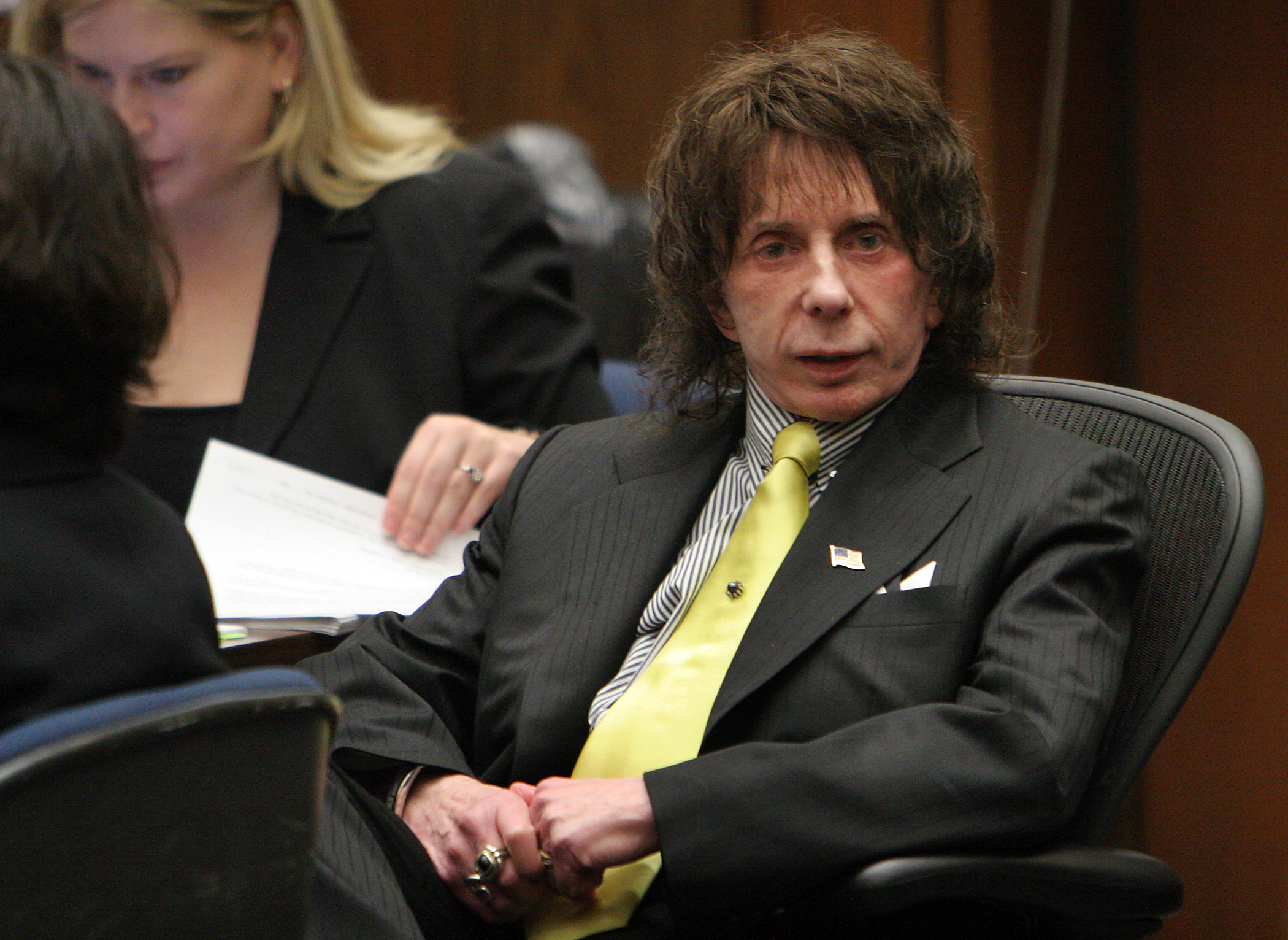As news broke over the weekend that Phil Spector had died of COVID-19 complications in prison at the age of 81, you may have noticed a pattern in the way publications chose to identify him in their obituaries: “famed music producer and convicted murderer,” “famed ‘Wall of Sound’ producer convicted of murder,” and even simply “talented but flawed producer.”
On some level, it makes sense. Spector had established himself as the first superstar pop producer long before he murdered actress Lana Clarkson in 2003, and despite the high-profile trial that led to his 19-years-to-life sentence, he’s still probably more known for his legendary work with the likes of The Ronettes, The Crystals, The Righteous Brothers and Darlene Love than for the time he shot Clarkson in the mouth and walked out of his mansion saying, “I think I killed somebody.” After all, we wouldn’t necessarily refer to Charles Manson as a “musician and murderous cult leader.” But an upsetting number of the obituaries for Spector not only place his accomplishments ahead of his sins in their headlines — they deemphasize the decades of abuse he inflicted upon his artists and his family members.
Spector was a musical genius, no doubt, responsible for pioneering the lush, layered Wall of Sound that dominated pop for years. But that talent convinced many to write off his violent outbursts as eccentricities or simply look the other way. During his seven-year marriage to Veronica “Ronnie” Bennett (known professionally as Ronnie Spector of the Ronettes), he inflicted unspeakable abuse and literally kept her imprisoned in their home for years, locking her away and hiding her shoes so she wouldn’t be able to escape. (She eventually did, running out of his mansion barefoot in 1972.) He adopted twin five-year-old boys without telling her, giving them to her as a “Christmas gift” one year in an attempt to manipulate her into staying. He kept a gold, glass-top coffin in their basement and told her that if she ever left him, he’d kill her and display her corpse in it. He tanked her career, forbidding her from performing, and when she finally did leave, he convinced her to sign away all future earnings from her songs and custody of their children by threatening to hire a hit man to kill her.
And yet, only a handful of the obituaries about Spector take the time to mention this, focusing instead on his laundry list of achievements. The New York Times waits 28 whole paragraphs before mentioning his marriage to Bennett, and it fails to mention any specifics about the ways he tortured her. “His turbulent marriage to Ms. Bennett, chronicled in her 1990 memoir Be My Baby, ended in divorce,” it says, simply. Rolling Stone waits 14 paragraphs before mentioning the marriage, writing that Bennett “depicted Spector as an abusive husband prone to eccentric if not outright insane behavior.” Again, we’re talking about a man who kept his wife, a public figure responsible for some of his biggest hits, locked away in a house surrounded by barbed wire and guard dogs. How is that not more than a blip in the story of his life?
Bennett is far from the only one who had to endure horrific behavior from Spector. His adopted sons Gary and Donte claimed in 2003 that they were locked in their bedrooms and sexually abused as children. “We were caged animals to be let out for Dad’s amusement,” Donte said. (I am yet to come across a single obituary for Spector that mentions this.) He famously pulled a gun on Leonard Cohen during a recording session for Death of a Ladies’ Man, and the Ramones also claimed to be held at gunpoint by Spector while working on End of the Century. He fired a warning shot into the ceiling of the control room while working with John Lennon and, in a separate incident, pulled his gun and chased the former Beatle through the halls of the studio.
When he wasn’t terrorizing his artists with weapons, he was doing everything in his power to control them — convincing the members of his girl groups to perform under assumed names, replacing them with other singers when they failed to chart high enough (see: The Crystals), failing to give them proper credit, refusing to allow them to perform and stealing royalties from them. (In 1993, Darlene Love sued Spector for unpaid royalties and was awarded $250,000. In 1988, the Ronettes filed a similar suit, and in 2001 a judge ordered Spector to pay them $2.6 million in back royalties.) When David Letterman made a holiday tradition out of having Love on his show to perform “Christmas (Baby Please Come Home),” Spector called up the network and, according to Love, “told them that if they kept allowing me to do the song on the show, he’d sue them because I was not allowed to sing that song.” When she was inducted into the Rock and Roll Hall of Fame in 2011, he “just about went nuts,” insisting that she didn’t deserve it.
All of this begs the question: how are we supposed to remember a man who was both incredibly talented and a total monster? The term “tortured genius” gets thrown out far too often, historically as a way to excuse the predatory behavior of someone whose art has been deemed to be “worth” the pain of his victims — “yeah, he killed a lady and abused and manipulated countless others, but he was complicated, and ‘Be My Baby’ is a classic.” It raises the age-old “can you separate the art from the artist?” debate, and while that’s a question we’ll likely be laboring over until the end of time, in this particular case, there’s a clear answer.
That answer is a resounding yes — not for Spector’s sake, but for the sake of the talented artists (many of them Black women) who don’t deserve to have their music erased or forgotten simply because they had to make it while enduring unimaginable abuse from him. The Ronettes didn’t kill anyone. Darlene Love isn’t guilty of abuse. The Crystals never tried to cheat anyone out of money. If anything, they should be celebrated more, their musical feats made all the more impressive by the fact that they were accomplished under incredibly difficult, painful circumstances. By all means, keep listening to A Christmas Gift for You from Phil Spector every December — just skip the spoken-word track by Spector at the end and focus instead on the timeless artistry from those he tried to overshadow.
So maybe, moving forward, Spector can rot in hell and we can all go out of our way to make sure that any future conversations about him include the full scope of his crimes. It’s okay to still love his music and appreciate his pop legacy, but we should do so with the understanding that his accomplishments weren’t just his. Without the likes of Ronnie Bennett and Darlene Love, those “famed producer and convicted murderer” headlines might simply read “murderer.”
This article appeared in an InsideHook newsletter. Sign up for free to get more on travel, wellness, style, drinking, and culture.
























